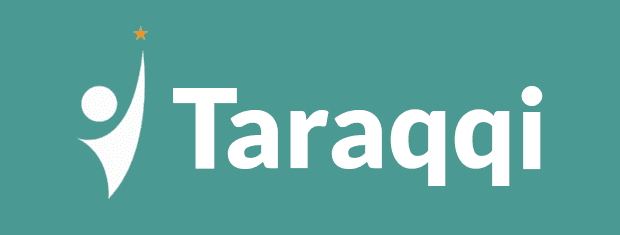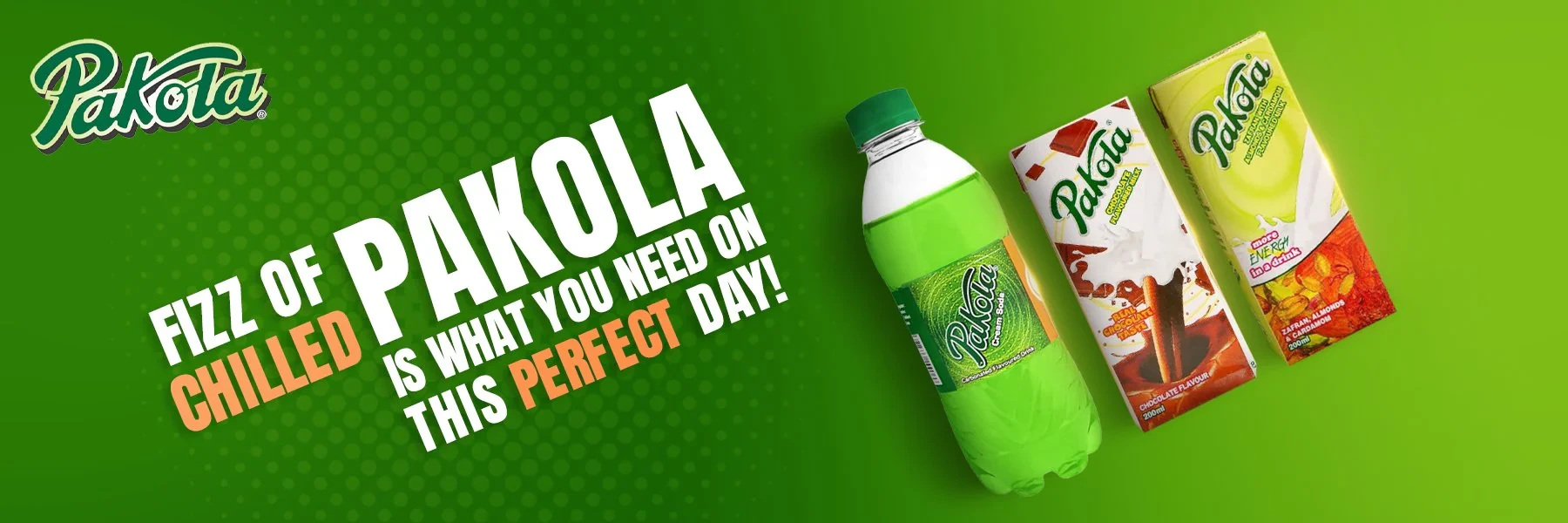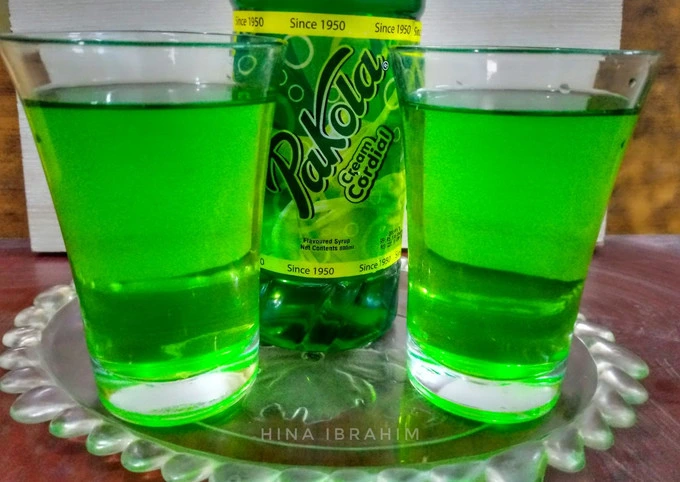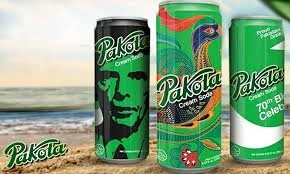Why Is Pakola Banned in Pakistan? The Real Story Behind the Rumors (2025)
There has been growing speculation about the status of Pakola in Pakistan, with some people questioning whether it has been banned. However, Pakola is not banned in Pakistan. It continues to be manufactured and sold across the country, though not as widely visible as before. So, what’s behind the confusion?
Misunderstandings and Social Media Buzz
The idea that Pakola has been banned appears to be fueled by misinformation and online chatter. Social media posts, viral messages, or assumptions based on limited shelf presence may have contributed to this myth. In reality, no government order or official statement has declared a ban on the brand.
Availability vs. Ban
One major reason for the confusion is limited availability in certain regions. Unlike international soft drink giants that dominate every city and town, Pakola has a more regional focus, with stronger distribution in urban hubs like Karachi. This restricted presence can lead some consumers to believe the product has vanished from the market altogether.
No Official Ban by Authorities
To date, there is no record of any government ban on Pakola by federal or provincial authorities. While food and beverage companies in Pakistan often undergo health, safety, and taxation scrutiny, there has been no action to suggest a ban or prohibition on Pakola products.
Supporting Local: A Growing Sentiment
In recent years, especially amid movements encouraging boycotts of international brands, many Pakistanis have expressed renewed support for local products. Brands like Pakola are being recognized not just for nostalgia, but for their homegrown identity. Consumers are becoming more aware of the impact of supporting national businesses—and Pakola stands as a symbol of local pride.
The question of why is Pakola banned in Pakistan has circulated widely across social media in 2025, despite the iconic green beverage’s deep historical roots in the country. Pakola was invented by seven Teli brothers, who traveled to Pakistan in 1947, arriving in the country after the partition of India and Pakistan in 1947, Pakola entered the market on August 14 in the year 1950 at the Pakistan Air Force base, coinciding with the nation’s independence anniversary.
However, these ban rumors have caused confusion among consumers of various Pakola products, including their bottled water and beloved cold drink that has become a symbol of national pride for millions of Pakistanis.
In fact, Pakola has officially refuted these claims, stating they are completely unfounded. The company behind Pakola water, Mehran Bottlers Pvt. Ltd., maintains that their products adhere to strict quality controls and meet international safety standards, holding several certifications including ISO 9001:2015 and FSSC 22000.
Also, it is unfortunate that most people do not know that Pakola has found its way outside of Pakistan and is now sold in America, Africa, Australia, Canada, the Middle East, New Zealand, and the United Kingdom. It the only Pakistani-manufactured carbonated beverage exported globally. This article examines the origins of these ban rumors, investigates their validity, and explores how this controversy has affected Pakola’s reputation and price in Pakistan.
The Origins and Rise of Pakola
On a patriotic day that would forever link the brand with national identity, Pakola was established on August 14, 1950, making it almost as old as Pakistan itself. This date was chosen deliberately, as it marked Pakistan’s third independence anniversary, creating a powerful symbolic connection between the beverage and the nation.
How Pakola was founded in 1950
Pakistan Beverage Limited started as a single-line beverage manufacturing operation in Karachi, creating the first 100% Pakistani formulated carbonated soft drink. The drink made its official debut at the Pakistan Air Force Base in Karachi during a ceremony attended by Pakistan’s first Prime Minister, Liaquat Ali Khan. From its inception, Pakola positioned itself as more than just a beverage—it was designed to be a symbol of national pride and identity.
The role of the Teli family and Mehran Bottlers
Behind this iconic green beverage stood a remarkable entrepreneurial story. In 1947 (the Partition of India), seven of the Teli family (a well established family in the region of Dhoraji in Gujarat state of India) immigrated into Pakistan, where they established Pakola.
The founder, Haji Ali Mohammad, dreamed of developing a drink that would represent the true essence of Pakistan. The very fact that its name is based on Pakistan-Cola only supports its patriotic roots.
Subsequently, the family established Mehran Bottlers (Pvt.) Limited, which became the primary manufacturer of Pakola products. The company eventually expanded beyond its flagship green cream soda to offer other flavors and products.
Pakola’s early popularity and cultural impact
Initially, Pakola struggled to find its market amidst competition from established brands. Nevertheless, the drink gained traction in the early 1960s when keepers of shrines in Lahore and Karachi began mixing Pakola with chilled milk during communal iftars in Ramadan. This tradition soon spread to households across Pakistan, making Pakola mixed with milk a fixture of Ramadan celebrations.
Intriguingly, the bright green beverage also gained popularity among Western tourists traveling the famous “hippie trail” through Pakistan in the 1970s. While never becoming Pakistan’s largest-selling soft drink, Pakola certainly established itself as the most recognized, earning the unofficial title of “Pakistan’s national soft drink”.
What Sparked the Ban Rumors in 2025
In mid-2025, social media platforms across Pakistan buzzed with alarming claims that seemed to question the future of a beloved national brand. These viral assertions created a perfect storm of misinformation that would temporarily shake consumer confidence in one of Pakistan’s most iconic products.
Initial social media claims and viral posts
The controversy ignited when unsubstantiated claims about the presence of hazardous bacteria in Pakola Pure Drinking Water began circulating online. Within days, viral posts questioning “why is pakola banned in pakistan” proliferated across multiple platforms, though no official ban had actually been implemented.
The unfounded allegations gained traction primarily because they targeted a product many Pakistanis associated with national pride. As a result, consumers became increasingly concerned about the pakola price in pakistan and whether they should continue purchasing these products.
Confusion with Pakola water vs. Pakola cold drink
At the heart of the controversy lay a fundamental misunderstanding. Many social media users failed to distinguish between the original pakola cold drink—the iconic green beverage—and pakola water, a separate product line. Furthermore, a public notice by M/S Yassir Distributors raised questions about whether another company was launching a product called “Pakola Drinking Water” without proper authorization.
This created significant confusion about which pakola products were allegedly problematic. Some consumers mistakenly believed that all pakola products, including the beloved green soft drink, were affected by these alleged quality issues.
Media amplification and public reaction
Traditional media outlets subsequently picked up these stories, inadvertently lending credibility to the unfounded rumors. Reports surfaced about content related to Pakola Water being removed from online platforms, which some interpreted as confirmation of problems. In response, Mehran Bottlers Pvt. Ltd., the manufacturer behind the pakola bottle products, issued an official statement categorically denying these claims.
The company emphasized that their water products met “the highest international standards” with multiple ISO certifications. Moreover, Pakola pledged to take legal action against individuals or entities spreading false information that harmed their brand reputation. Throughout this period, many consumers wondered if pakola, which some incorrectly believed was owned by Pepsi in Pakistan, was genuinely facing regulatory issues.
Investigating the Truth: Was Pakola Really Banned?
Amid swirling speculation about Pakistan’s beloved soft drink, an objective investigation reveals critical facts behind the sensationalized claims. The controversy centered around Pakola Pure Drinking Water, not the iconic pakola cold drink many mistakenly believed was under scrutiny.
Clarifying the difference between a ban and a rumor
Contrary to viral posts asking “why is pakola banned in pakistan,” no actual ban was ever implemented by authorities. This distinction is crucial—what Pakistan experienced was a classic case of misinformation spreading rapidly through social media. Similar to other viral hoaxes that have affected Pakistani consumers previously, these claims gained traction despite lacking official backing.
Pakola’s official response to the allegations
On July 29, 2024, Mehran Bottlers Pvt. Ltd. (the manufacturer behind pakola products) categorically refuted these allegations, stating they were “completely unfounded”. The company issued a statement assuring customers that their products maintained “the highest quality and safety” standards. This swift response demonstrated that despite rumors, the pakola bottle products remained available in markets nationwide.
PCRWR and ISO certifications for Pakola water
To validate their claims, Pakola shared their quarterly report for April-June 2024 from the Pakistan Council of Research in Water Resources (PCRWR), confirming their water was “safe and of high quality”. Additionally, Mehran Bottlers holds multiple international certifications:
- ISO 9001:2015 (Certificate No: 735 1509P)
- ISO 45001:2018 (Certificate No:175 ISO45P)
- ISO 14001:2015 (Certificate No:189 IS014P)
- FSSC 22000 (Certificate No: PK004174-1)
Legal threats against misinformation spreaders
Consequently, Pakola pledged to “take legal action against individuals or entities spreading false information” that harmed its brand reputation. This approach aligns with broader government efforts to combat misinformation, as authorities have recently identified individuals involved in circulating false claims across various platforms.
How the Controversy Affected the Brand
The social media storm surrounding Pakola created both challenges and unexpected opportunities for the iconic Pakistani brand. Rather than damaging sales permanently, the controversy ultimately highlighted consumer loyalty toward local products.
Impact on Pakola price in Pakistan and sales
Remarkably, before the controversy, Pakola already generated approximately Rs 15 billion in annual sales. Instead of witnessing a decline after the ban rumors, Pakola actually benefited from a wider consumer shift toward local brands. As a delivery app Krave Mart reports, local colas such as Pakola were catapulted to popularity with local colas dominating approximately 12 percent of the soft drinks sector when contrasted with only 2.5 percent prior to international brand boycotts.
Public trust and brand loyalty
Throughout the challenges, Pakola’s deep-rooted cultural connections proved invaluable. The brand’s loyal customer base, built over decades of association with Pakistani tradition, largely stood by the product. This was in line with general consumer moods where IPSOS polls showed that 42 percent of Pakistanis had the view that the country was on the right track which is the greatest positive sentiment in six years ago.
Pakola’s export market resilience
Globally, Pakola’s international distribution remained steady. As Pakistan’s only exported carbonated beverage, the brand continued to maintain its presence in foreign markets even amid domestic controversies.
Steps taken to rebuild consumer confidence
In response to the rumors, Pakola immediately issued official statements refuting the claims. The company strategically highlighted their numerous ISO certifications and promised legal action against misinformation spreaders, effectively communicating their commitment to quality standards.
Summary
The controversy surrounding Pakola ultimately proved baseless, demonstrating how quickly misinformation can spread in today’s digital environment. Most compelling evidence shows the rumors stemmed from confusion between Pakola’s bottled water products and their iconic green soft drink. Despite social media claims, no official ban ever existed. Mehran Bottlers Pvt. Ltd. effectively addressed these allegations through transparent communication about their quality standards and multiple international certifications.
Rather than damaging the brand, this episode actually highlighted Pakola’s cultural significance and consumer loyalty. Sales remained strong amid the controversy, with local cola brands including Pakola gaining market share. This resilience speaks volumes about the deep connection Pakistanis feel toward a brand that has represented national identity since 1950.
The Pakola story serves as a reminder about verifying information before accepting social media claims as fact. After all, this beloved green beverage has survived over seven decades of market challenges while maintaining its status as “Pakistan’s national soft drink.” Though competitors may come and go, Pakola continues its journey both domestically and internationally, representing Pakistani heritage across borders from America to Australia and beyond.
Pakola stands as more than just a refreshing beverage – it remains a symbol of Pakistani entrepreneurship, cultural pride, and national identity that has withstood both the test of time and the challenge of unfounded rumors.
FAQs
Q1. Is Pakola really banned in Pakistan?
No, Pakola is not banned in Pakistan. The rumors of a ban in 2025 were unfounded and stemmed from misinformation spread on social media. Pakola is still in the market and still a large amount of people consume and drink Pakola.
Q2. What certifications does Pakola have to ensure its quality?
Pakola has various international certifications, which include ISO 9001:2015, which is the standard of quality management, ISO 45001:2018, which is a standard on occupational health and safety management systems, ISO 14001:2015, which is a standard of environmental management systems, and FSSC 22000 which is the food safety management system standard. These certifications demonstrate the company’s commitment to maintaining high quality and safety standards for their products.
Q3. How did the ban rumors affect Pakola’s sales?
Surprisingly, the controversy did not negatively impact Pakola’s sales. In fact, the brand benefited from a shift towards local products, with Pakola and other local cola brands increasing their market share in the soft drinks category.
Q4. Is Pakola available outside of Pakistan?
Yes, Pakola is available in several countries outside of Pakistan. It is exported to America, Africa, Australia, Canada, the Middle East, New Zealand, and the United Kingdom, making it the only Pakistani-manufactured carbonated beverage with a global presence.
Q5. What makes Pakola unique among soft drinks in Pakistan?
Pakola is unique because it was the first 100% Pakistani formulated carbonated soft drink, created in 1950. It has become a symbol of national pride and identity, with its green color and cultural significance making it unofficially known as “Pakistan’s national soft drink.”



